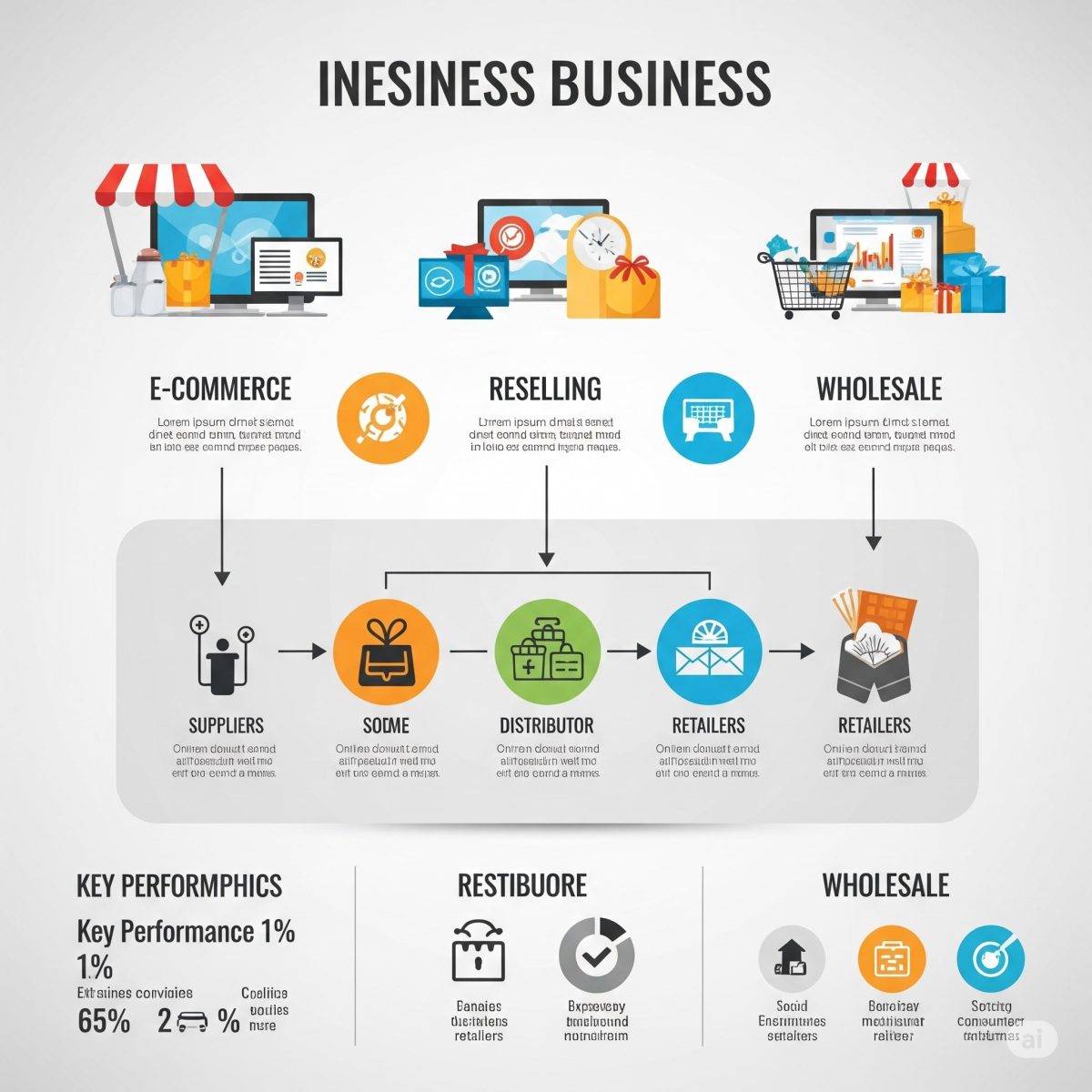In today’s digital age, starting your own business has never been easier. Whether you’re a student, a homemaker, or someone looking to leave the 9 5 hustle, you’ve probably heard terms like e-commerce, reselling, and wholesale. But what do they actually mean? And which one is best for you? Let’s break it all down so you can choose the path that suits your goals, resources, and lifestyle.
E-COMMERCE
E-commerce is the practice of selling products online, either through your own website or platforms like Amazon, Flipkart, or Shopsy. You can sell your own products or source them from suppliers. It has many advantages like having full control over branding and customer experience, enjoying high profit margins with right marketing and the power to build a long term loyal customer base.
You May Also Read:
Haldirams From Bhujia to Billion-Dollar Buzz
In e-commerce you have the opportunity to automate business operations. Requiring upfront investments, involving customer service, returns and logistics and learning digital marketing tools and strategies are some of the cons of e-commerce. It is best for entrepreneurs with a vision for brand building, persons who can spend money, time and efforts and people looking for long term business growth.
RESELLING
Reselling means selling products manufactured or stocked by someone else, usually via platforms like Meesho, Shop101, or GlowRoad. You don’t hold stock or worry about packaging and delivery, these are handled by the app. In reselling, one doesn’t need to invest money on inventory. It is easy to start with just a smartphone. It is perfect for part time with zero risk if done properly.
You May Also Read:
Creative Businesses: 5 Viable & Budget-Friendly Start-Up Ideas for People With Creative Mind
In this business, one needs to understand that there is a very low profit margin per product, one doesn’t have control over shipping and quality and it is hard to build a personal brand and loyal customer base. It is best suited for students, homemakers, or beginners. It is a good stepping stone for anyone looking for side hustle without investments and people who want to test the waters before going big.
WHOLESALE
Wholesale means buying products in bulk directly from manufacturers and selling them in bulk to retailers, shopkeepers, or other resellers. It’s a business-to-business (B2B) model that requires capital, space, and contacts. Here, high volume sales mean bigger profit per transaction. One involved in this business doesn’t need to deal with individual customers. This is great for repeat bulk orders if you offer quality.
This requires a lot of investments, has the risk of unsold stock if demand drops, needs proper storage, delivery logistics and connections in the market to find buyers. This is best for traders, distributors, or those with experience in supply chain. People who already have warehouse space and capital get the advantage and people interested in B2B business rather than retail should go for it.
You May Also Read:
Who Are You – Entrepreneur Or Employee? Let Us Help You Find Out
CONCLUSION
In the world of online business, there are many paths to success but choosing the right one depends on your resources, skills, and vision. If you’re just starting out and want a risk-free entry, reselling is a great way to learn and earn.
If you’re ready to invest time, money, and energy into building a brand of your own, e-commerce offers long-term potential. And if you already have market connections and capital, wholesale can bring you big profits through bulk trading.
If you’re also struggling with low sales in your business, this article can be extremely helpful for you. Moreover, if you’re facing any kind of challenge in your business and are looking for expert guidance, click on the link to the Leadership Funnel Program and get in touch with us now.
